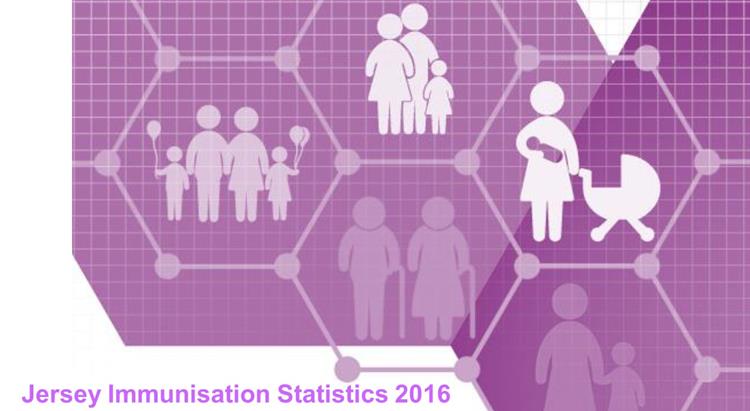19 October 2017

Latest annual immunisation uptake statistics for Jersey have been published by the Statistics Unit.
Vaccination programmes aim to protect the individual and to prevent the spread of infectious diseases within the wider population. Any decrease in the Island’s immunisation rates would be likely to raise the risk of disease being transmitted.
Headlines of the report include:
- more than 96 per cent of all babies born in Jersey during 2016 received the recommended vaccinations protecting them against potentially life-threatening diseases of whooping cough, diphtheria, tetanus, polio, Hib, meningococcal C and pneumococcal disease
- of the children reaching five years of age in 2016, 97 per cent had received at least one measles, mumps and rubella (MMR) vaccination. This is well above the World Health Organization’s target of 95 per cent
- of pupils in school year 9 during the 2016/17 academic year, 94 per cent received the recommended MenACWY vaccine to protect them against meningococcal bacteria strains that can cause meningitis and septicaemia (blood poisoning)
- in 2016, 70 per cent of Islanders who reached age 70 during the year had a shingles vaccine to minimise their chances of suffering from the painful condition
Head of Preventive Programmes, Dr Linda Diggle, said “On the whole, uptake rates of vaccinations in Jersey compare favourably with those of the UK. It’s evident from the figures that our population recognises the importance of prevention being better than cure.”
Dr Diggle added “In 2016, we recognised that we needed to do more to make it easier for vulnerable groups of people to get vaccinated against flu. Pregnant women, adults with a long-term medical condition (see list in footnotes) and people aged 65 or over are the groups most at risk of complications and/or being hospitalised if they catch flu. Pre-school age and primary school age children are also more vulnerable, with children under five more likely to be admitted to hospital with flu than any other age group.
“GPs and nurseries have worked with us during 2017 to make it easier for working parents to get their 2, 3 or 4 year olds protected at their child’s nursery with a nasal flu vaccine. Instead of parents having to take time off work to get to the surgery, GPs are instead going into nurseries.”
School vaccination starting after half term
From Monday 30 October, after half term, nurses will be going into primary schools to offer the nasal flu vaccine to all primary school year groups.
To increase accessibility for the vulnerable groups, local pharmacists are now offering flu vaccinations. Pregnant women, adults with a long-term medical condition and people aged 65 or over are able to get the flu injection for £10 at their surgery or local pharmacy.
Private flu vaccination is available for other adults who want to be vaccinated at their surgery or in a pharmacy – a private rate will be charged and it’s recommended to check this price in advance.
Further information about the flu vaccination can be found at www.gov.je/flu
 gov.je
gov.je